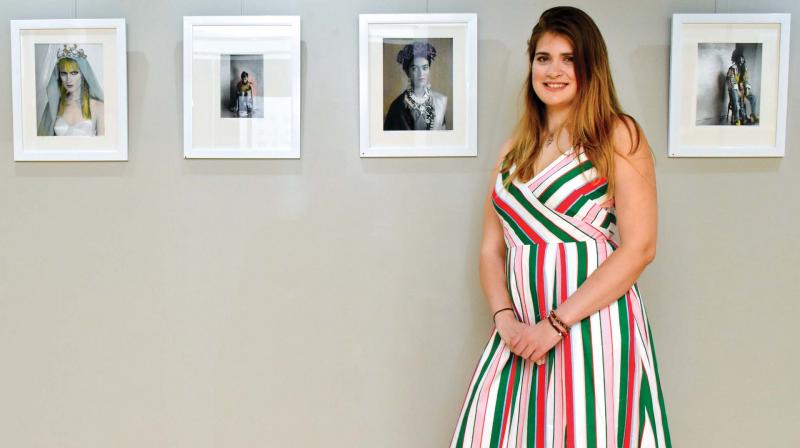Fighting spirit
Hand-painting photographs was a process used in the 19th century to add colour to black-and-white photographs.

Tara Louise McManus from London, whose first photo exhibition of hand-painted black-and-white photographs of women called ‘Female Warriors’ will be on in the city in The Studios at Cooke Town till September 15, says she wants to change the perspective of how women are viewed, moving from the prism of beauty to one of boldness
If you are seeing pictures of women portrayed as powerful female warriors rather than sexualised subjects, the artist is, most likely, the London-based Tara Louise McManus. “Hand-painting photographs was a process used in the 19th century to add colour to black-and-white photographs. I was always inspired by those photographs so I decided to try it out on my own work, but add contemporary elements to the photographs,” explains Tara Louise, who started colouring the photographs six months ago. She was specific about the subjects she selected. It would be women for sure, but the concept of female warriors captured her imagination. She wanted to use it to change the way women are portrayed.
Tara Louise speaks passionately about her vision for this body of work: “Women being projected as sexualised objects cuts across all borders, not just in India, especially in fashion images.
I was trying to break away from that. This is a conceptual project to portray the inner strength of a woman. Feminine strength doesn’t just belong to this century. It is part of our DNA. Warriors are generally perceived as muscly men, trained for battle. But women through the ages and in all corners of the world and every sphere of life have had to fight for so many things, from rights to recognition as equals, untrained and using their inner strength.”
These are not images for the voyeur, she emphasises. “I wanted to express what it means to have strength as a woman; a female warrior. The subjects always convey their power, their sexuality and their vulnerability. These works challenge the traditional iconography of female representation. The viewer is not invited to gaze, but is challenged as an equal, even when the subject is at her most vulnerable,” Tara Louise explains.
Apparently, a study titled ‘Gender Stereotyped Portrayal of Women in the Media’ says 63 percent of students consider the unethical and stereotyped presentation of women as a major social issue and that certain regulations that can restrain the unnecessary and unethical depiction of women are the need of the hour. Sixty-seven per cent of the youth studied is also strongly condemning those products where women are portrayed thus. In a world that is fast taking notice of such things, this photo exhibition is certainly another step in the right direction.

